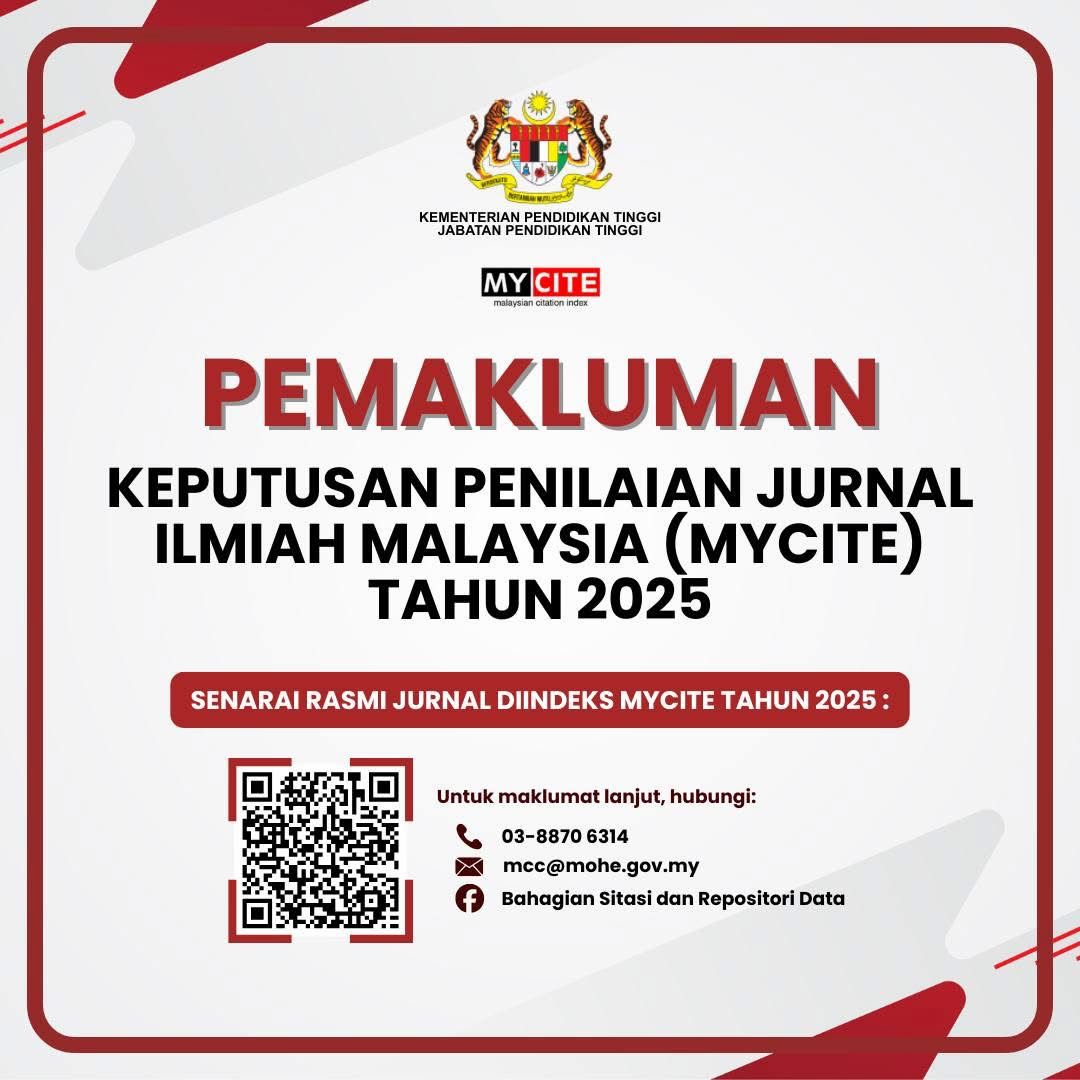Causes of Intercultural Conflict and its Management Styles Among Students in Sunway University
DOI:
https://doi.org/10.24191/idealogy.v5i2.242Keywords:
Intercultural Conflict, Management Styles, Sunway UniversityAbstract
The purpose of this study is to discover the causes of intercultural conflict and its management styles among Sunway University students. A total of six participants were selected from among different departments at Sunway university. A qualitative method was used to achieve the objectives of this research through in-depth interviews. the causes of intercultural conflict and its management styles were assessed based on intercultural conflict and intercultural conflict management style theory. The participants’ feedback was transcribed and analyzed by using the deductive coding method which identified themes such as intercultural conflict, impact on intercultural conflict on relationships as well as intercultural conflict management styles that comprises of five categories, obliging, dominating, avoiding, compromising and integrating style. The results suggest, misunderstanding, as the main cause of intercultural conflict and it impacts people both positively and negatively depending on the situation. While suggesting avoiding style as the most used style of overcoming intercultural conflict among Sunway university students when it comes to gender, race, religion and cultural issues. The research findings will add to existing work on intercultural conflict and its management styles.
Keywords: Intercultural Conflict, Management Styles, Sunway University
References
Bao, Y., Zhu, F., Hu, Y., & Cui, N. (2016). The Research of Interpersonal Conflict and Solution Strategies. Psychology, 07(04), 541-545. http://dx.doi.org/10.4236/psych.2016.74055
Bazezew, A., & Neka, M. (2017). Interpersonal Conflicts and Styles of Managing Conflicts among Students at Bahir Dar University, Ethiopia. Journal Of Student Affairs In Africa, 5(1). http://dx.doi.org/10.24085/jsaa.v5i1.2480
Braun, V. and Clarke, V. (2006) Using thematic analysis in psychology. Qualitative Research in Psychology 3 (2): 93.
Corbin, J., & Strauss, A. (1990). Grounded theory research: Procedures, canons, and evaluative criteria. Qualitative Sociology, 13(1), 3-21. http://dx.doi.org/10.1007/bf00988593
Deutsch, M. (2003). Cooperation and Conflict: A personal Perspective on The history of the Social Psychological Study of Conflict Resolution. In M. A. West, D. Tjosvold & K. G. Smith (Eds.), International handbook of organizational teamwork and cooperative working (pp. 9-44). West Sussex, England: John Wiley & Sons.
Dudovskiy, J. (2012). Purposive sampling. Research Methodology. Retrieved 26 October 2016, from http://research-methodology.net/sampling-in-primary-datacollection/purposive-sampling/
Gordon, J. (2003). The Pfeiffer book of successful conflict management tools. San Francisco: John Wiley & Sons, Inc.
Hamlin, A., & Jennings, C. (2004). Group formation and political conflict: Instrumental and expressive approaches. Public Choice, 118(3/4), 413-435
Hammer, M. R. (). Additional cross-cultural validity testing of the Intercultural Development Inventory. International Journal of Intercultural Relations.
Hammer, M. R. (). The Intercultural Development Inventory manual. Berlin, MD: IDI.
Hammer, M. R. (a). The Intercultural Development Inventory: An approach for assessing and building intercultural competence. In M. A. Moodian (Ed.), Contemporary leadership and intercultural competence: Exploring the cross-cultural dynamics within organizations. Thousand Oaks, CA: Sage
Lee, K., & Chen, S. (2015). Brief Report: Interpersonal Conflicts between Chinese and Taiwanese International Students. Journal of Psychology and Behavioral Science, 3(2). http://dx.doi.org/10.15640/jpbs.v3n2a7
Leung, K. (1987). Some determinants of reactions to procedural models for conflict resolution: A cross-national study. Journal of Personality and Social Psychology, 53, 898-908.
Leung, K. (1988). Some determinants of conflict avoidance. Journal of Cross-Cultural Psychology, 19,125-136.
Leung, K., & Iwawaki, S. (1988). Cultural collectivism and distributive behavior. Journal of Cross- cultural Psychology, 19, 35-49
Marcus, E. C. (2014). Change and conflict: Motivation, resistance, and commitment. In M. Deutsch, P. T. Coleman, & E. C. Marcus (Eds.), The handbook of conflict resolution: Theory and practice (3rd ed., pp. 513–532). San Francisco, CA: Jossey-Bass
Martin, J. N. & Nakayama, T. K. (2013). Intercultural communication in contexts. (6th ed.). Singapore: McGraw-hill
Otieno Ayoma, E. (2015). Influence of interpersonal conflicts on the students’ academic performance in Kenya.
Rahim, M.A. & Bonoma, V.T. (1979). Managing organizational conflict: a model for diagnosis and intervention, Psychological Reports, Vol. 44, pp. 1323-44.
Rahim, M.A. (1985). A Strategy for Managing Conflict in Complex Organizations. Human relation, 38:81
Rahim, M.A. (1990). Theory and research in conflict management. New York: An Imprint of Greenwood Publishing Group, Inc.
Roloff, M. E., & Soule, K. P. (2002). Interpersonal Conflict: A Review. In M. L. Knapp & J.A. Daly (Eds.), Handbook of interpersonal communication (3rd ed., pp. 475 28). Thousand Oaks, CA: Sage.
Ruble, R.A., & Zhang, Y. (2013). Stereotypes of Chinese international students held by Americans. International Journal of Intercultural Relations, 37(2), 202-211. Doi: 10.1016/j.ijintrel.2012.12.004
Shupe, E. I. (2007). Clashing cultures: A model of international student conflict. Journal Of Cross- Cultural Psychology, 38(6), 750-771. Doi: 10.1177/0022022107308996
Ting-Toomey, S. (2006). Managing intercultural conflict effectively. In L. A. Samovar, R. E.Porter & E. R. McDaniel (Eds.), Intercultural communication: A reader (pp. 366-377). Belmont, CA: Wadsworth.
Toku, E. (2014). Conflict management practices in selected basic schools in the Ashanti region. [online] Ir.knust.edu.gh. Available at: http://ir.knust.edu.gh/bitstream/123456789/7633/1/FINAL%20 PROJECT%20MBA.pdf (Accessed 18 Oct. 2018).
Webb, C. (2017). Moving on or digging deeper: Regulatory mode and interpersonal conflict res.: Search All. Retrieved from http://eds.b.ebscohost.com/eds/pdfviewer/pdfviewer?vid=1&sid 0b25cd60-d834-4dac-a43b-84a444960ccb%40pdc-v-sessmgr01
What is Conflict? (2018). Retrieved from https://sielearning.tafensw.edu.au/toolboxes/toolbox316/rm/rm_c19.html
Downloads
Published
Issue
Section
License
UiTM Press (the Publisher) has agreed to publish the undersigned author’s paper in Idealogy Journal. The agreement is contingent upon the fulfilment of a number of requirements listed below.
1. The undersigned author warrants that the paper entitled below is original, that it is not in any way libellous or unlawful in Malaysia, that it does not infringe any copyright or other proprietary right. The undersigned hereby represents and warrants that he/she is the author of the paper, except for material that is clearly identified as to its original source, with permission notices from the copyright owners where required. The undersigned represents that he/she has the power and authority to sign and execute this agreement.
2. The undersigned author warrants that the paper entitled below has not been published elsewhere, and also it will not be submitted anywhere else for publication prior to acceptance/rejection by this Journal.
3. By submitting the paper entitled below, the undersigned author agrees to transfer the rights to publish and distribute the paper in an international e-journal (entitled above) to Publisher.
4. The undersigned author agrees to make a reasonable effort to conform to Publisher's submission guidelines and to liaise with the editor to ensure that the requirements of these guidelines are met to a reasonable degree.
5. The corresponding author signs for and accepts responsibility for releasing this material on behalf of any and all coauthors. This agreement is to be signed by at least one of the authors who has obtained the assent of the co-author(s) where applicable. After submission of this agreement signed by the corresponding author, changes of authorship or in the order of the authors listed will not be accepted.




